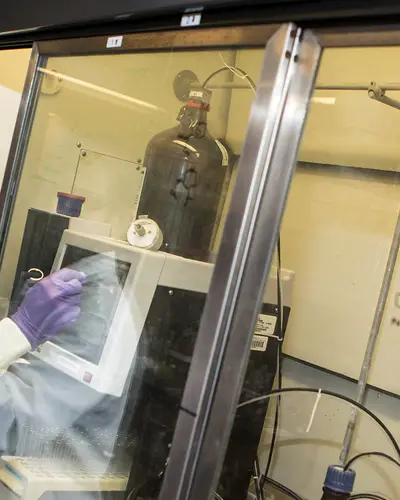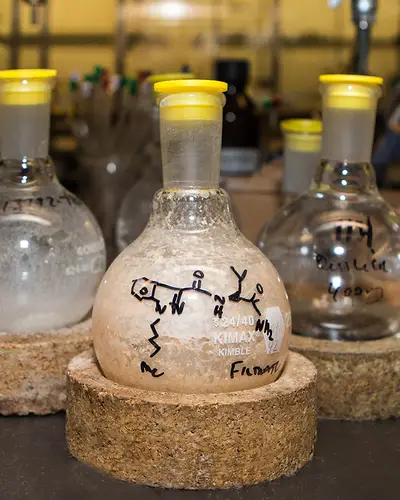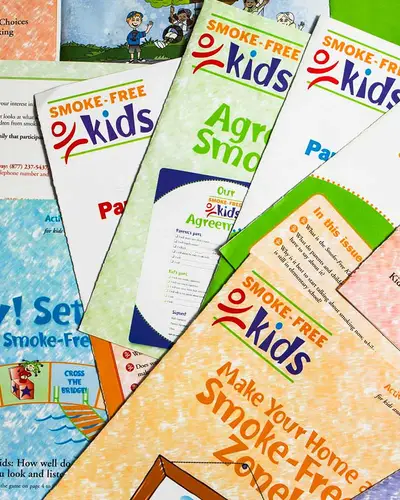Evidence-based strategies to prevent substance use initiation and overdose deaths
The substance use epidemic is continuing to spread, with millions initiating drug use each year. In 2021, 1.8 million Americans 12 years of age or older started misusing prescription pain relievers, 26,000 began using heroin, and 478,000 initiated use of cocaine, according to the National Survey of Drug Use and Health. The most effective method for addressing the epidemic is to prevent substance use initiation—especially among populations at risk for misuse, like adolescents and young adults.
With decades of experience as a foundation, RTI International’s experts are at the forefront of research to develop, implement, and evaluate evidence-based strategies for preventing substance use initiation.
Community-Based Substance Use Prevention
The implementation of community-based prevention efforts helps to reduce substance use initiation by addressing community-level factors that increase risk. Effective prevention programs integrate the voices of community leaders with lived experiences; provide comprehensive, evidence-based programs in a variety of settings; and encompass the characteristics of the community.
Our researchers understand the important role that community-based prevention efforts play in addressing the ongoing substance use crisis. Through the National Institutes of Health’s (NIH’s) Helping to End Addiction Long-term® Initiative (HEAL), RTI is hosting the NIH HEAL Prevention Coordinating Center, which supports individual projects focused on preventing opioid misuse among older adolescents and young adults. RTI also serves as the cross-site evaluator for the Substance Abuse and Mental Health Administration’s Strategic Prevention Framework for Prescription Drugs (SPF Rx) program, studying the effectiveness of SPF Rx grantee programs in reducing and preventing prescription drug misuse.
To better measure the social factors that impact substance misuse and overdose outcomes, RTI researcher Lisa Lines, PhD, developed the RTI Rarity™ project. This innovative tool creates scores based on community-level factors, which states and local communities can use to prioritize prevention programming based on risk level.
Substance Use Surveillance
An understanding of the latest substance use trends is essential for informing substance use prevention initiatives and programs. For the past several decades, mortality data has been the only available source of data for monitoring substance use trends. Given the rapidly evolving nature of the crisis, this method is not optimal, as mortality data typically has a 12- to 18-month reporting lag.
Researchers at RTI and North Carolina A&T State University have been pioneering a new method for collecting more timely data on opioid use trends. Our experts compiled more than 100,000 opioid-related Twitter posts and examined how they correlated with the three phases of the opioid epidemic. Results from the initial study indicated a significant correlation between Twitter posts mentioning heroin and synthetic opioids and deaths from those drugs in the same and following year, indicating social media data can be used to predict trends and signal opportunities for implementing prevention efforts.
Substance Use Communication Campaigns
Campaigns that effectively educate people on the dangers of substance use are a critical component of prevention efforts. Successful campaigns can prevent substance use initiation, drive demand for evidence-based intervention and treatment services, and reduce stigma. Our experts have decades of experience developing and evaluating marketing and public health communications programs.
In an RTI study, researchers conducted a review of 166 opioid-related campaigns to gain an understanding of best practices for communicating the risks of opioid use. Researchers found that successful communications campaigns move beyond surface-level, awareness-based messaging and also feature people with lived experiences, providers, and leaders in the community.
Non-Addictive Medication for Chronic Pain
Approximately 20.4% of U.S. adults suffer from chronic pain, according to data from the 2019 Center for Disease Control and Prevention’s National Health Interview Survey.
RTI researchers are working on developing an opioid alternative that treats neuropathic pain in chronic pain patients without the risk of addiction. For decades, researchers have worked on creating a cannabis compound that relieves pain without triggering the drug’s psychoactive side effects. In collaboration with researchers at the University of California, Los Angeles (UCLA) and New York University (NYU), our experts are developing and testing a compound that alleviates nerve pain without activating the brain’s cannabinoid receptors.






























